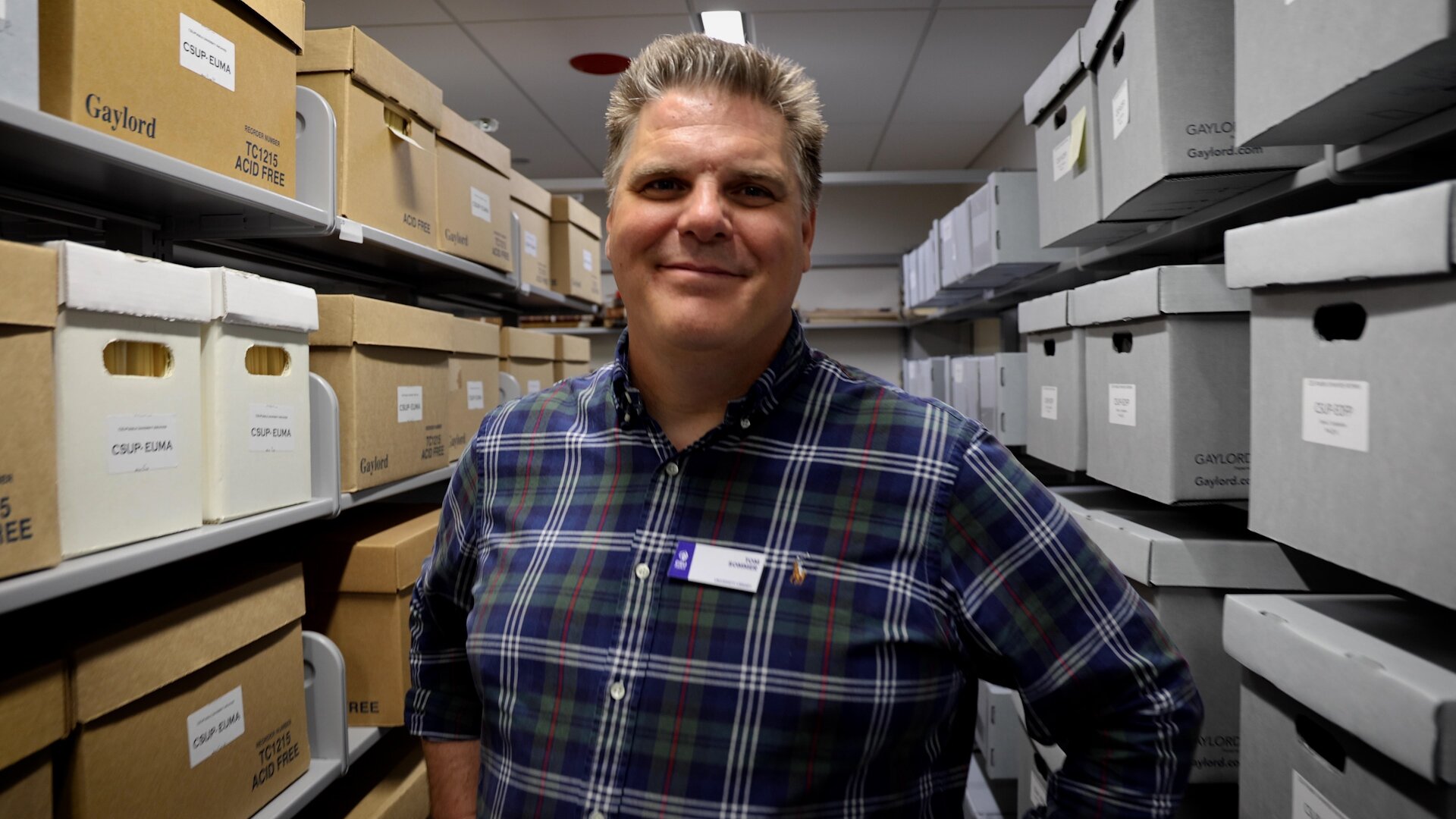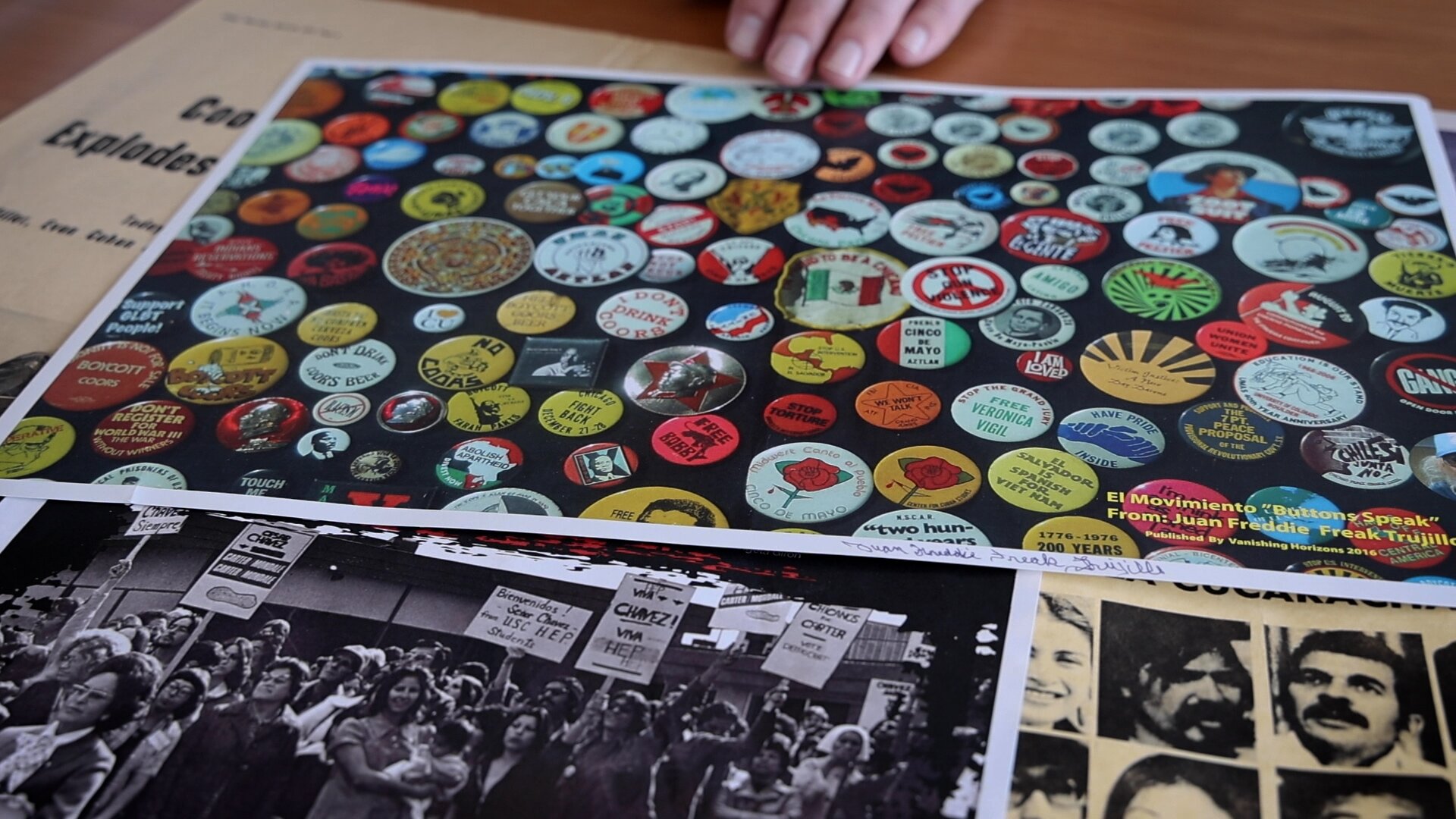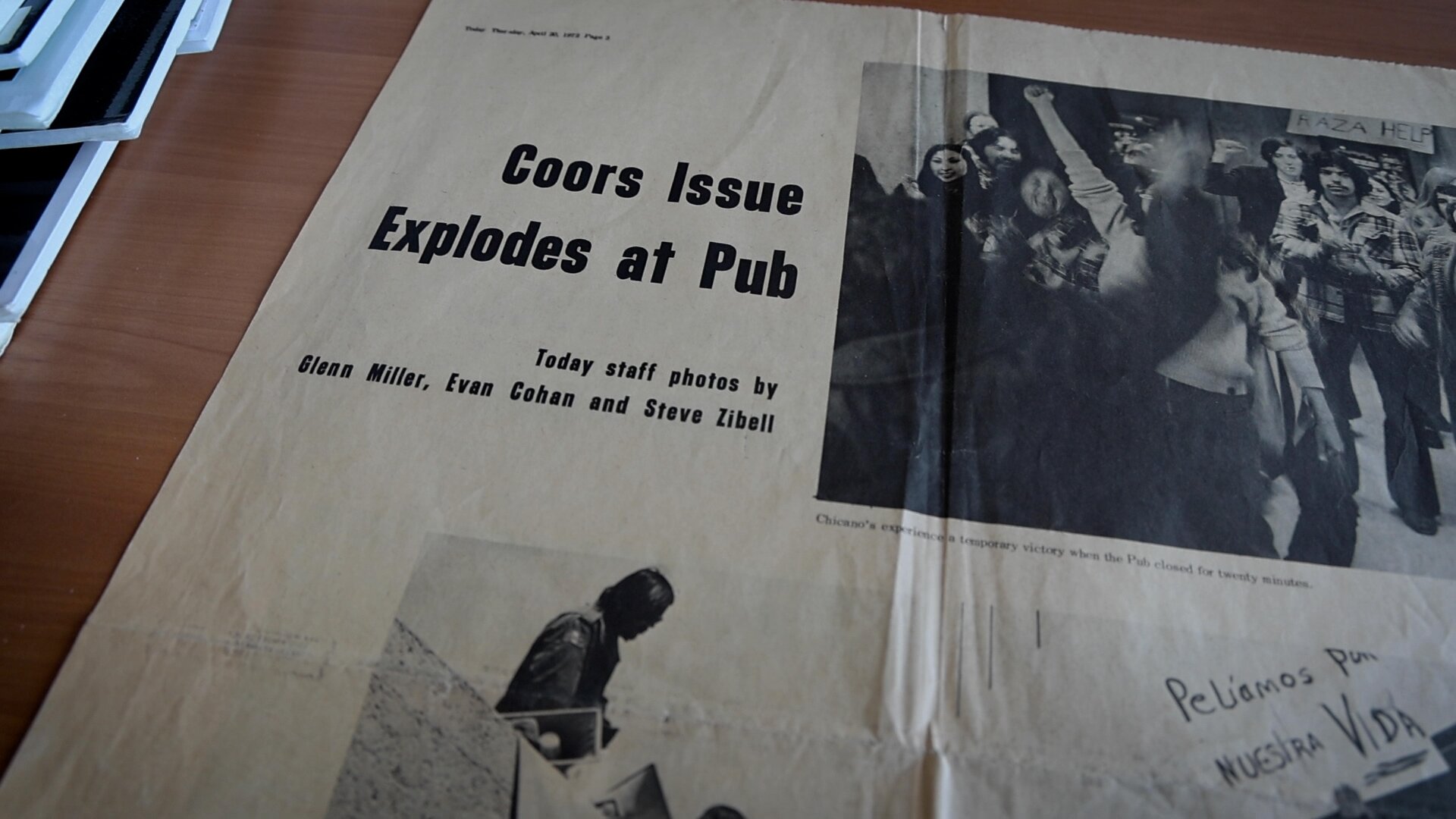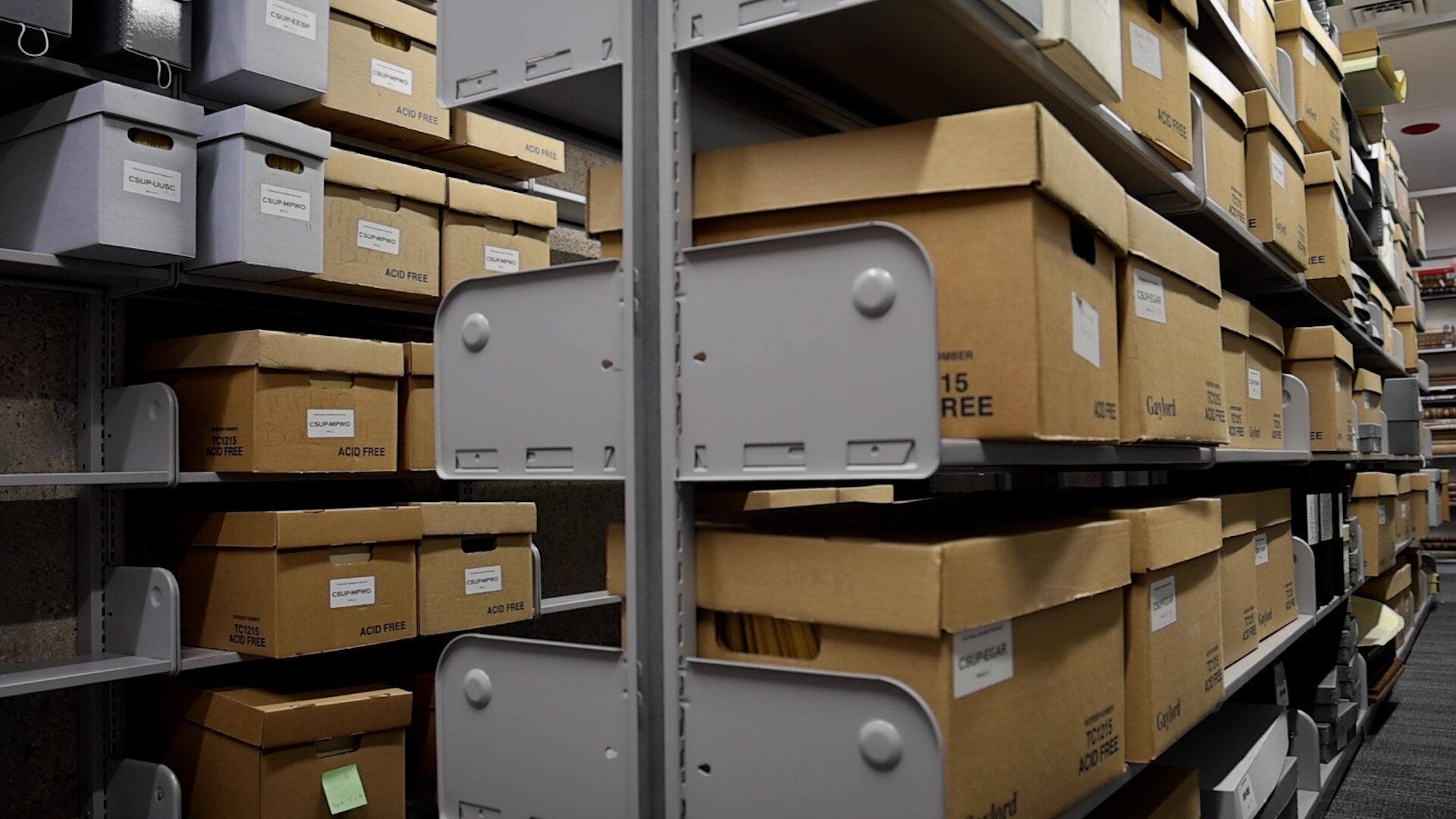Aztlán Research Center celebrates Chicano archival history

PUEBLO, Colo. — Overlooking campus from a sixth-floor office perch, surrounded by bookcases and artifacts from archival collections, CSU-Pueblo archivist Tom Sommer sifts through a box of recently acquired materials.
The library’s Archives and Special Collections collects and shares materials documenting the University’s history, Southern Colorado’s ethnic heritage and local history, Sommer said.
“It’s all about preserving — and then providing access,” he explained.

CSU-Pueblo archivist Tom Sommer
Sommer and staff process donated and acquired archival media in acid-free folders and digitize items for researchers as well as the public. They create finding guides and other tools for researchers to access a particular collection that include keyword searches and appear online, Sommer said.
Over 25 collections comprise the Colorado Chicano Movement Archives, Sommer said, ranging from photography and poster collections to documentation of civil rights issues. While not everything in these collections is available online, digitizing this content is a priority, he said.
“Not everybody can travel to do research,” Sommer acknowledged. “If we have a big project we want to digitize, and there are many boxes with items like old film, we will try to get grant money to turn that collection into slides and other digitized files that we can put on our website.”



Sommer attributes a revived interest in the social justice movement of the 1960s and 70s to family members and relatives now learning the stories of their elders as they age.
“A lot of these stories have never been told before,” he acknowledged. “These stories provide access to different worlds. New generations are coming up and ready to listen to different perspectives.”
Many activists who led in the 1960s and 70s are also turning their archives over to the college, Sommer said, trusting CSU-Pueblo and the Aztlán Research Center with their legacies as the university and research center expands the database of related materials.
“Through these collections, we’re learning that activists want the same things that everyone wants,” Sommer said. “Whether clean water or access to food and health care, the issues remain largely the same. There has been good progress, but people still deal with these issues today. Through these collections, we can see insights about the past, and how to move forward.”
Learning the interconnected stories of families and histories in the Pueblo and southern Colorado region is his favorite aspect of this work, Sommer said.
“Everybody has a story to tell. That’s the beauty of archiving,” he said. “Whether preserving documents or an oral history interview, we’re capturing a story for people, one that maybe will add to a bigger story down the line. When you step back and look at Colorado, you can see a full picture of our history through these stories.”
Hundreds will gather at CSU-Pueblo August 2 and 3 in support of this history at the third Aztlán Research Center Summer Institute, held in partnership with CLLARO (Colorado Latino Leadership Advocacy and Research Organization).
The program includes leading scholars and orators in the field of Mestizaje history and culture and in the political representation and social and economic well-being of Colorado’s Latino and Chicano communities. Speakers include Dr. Estevan Rael Galvez, Irene Vasquez, Aaron Abeyta, Nick Saenz, Christina Leza, Federico Peña and other civic leaders.
The program will draw participants from the state and region, Sommer said, with breakout sessions with subject matter experts on Colorado’s voting strategy, the Colorado Latino achievement gap, and more.
Kate Perdoni is Engagement Journalism Director at Rocky Mountain PBS and can be reached at kateperdoni@rmpbs.org.
Related Stories
More than 25 collections comprise the Colorado Chicano Movement Archives.